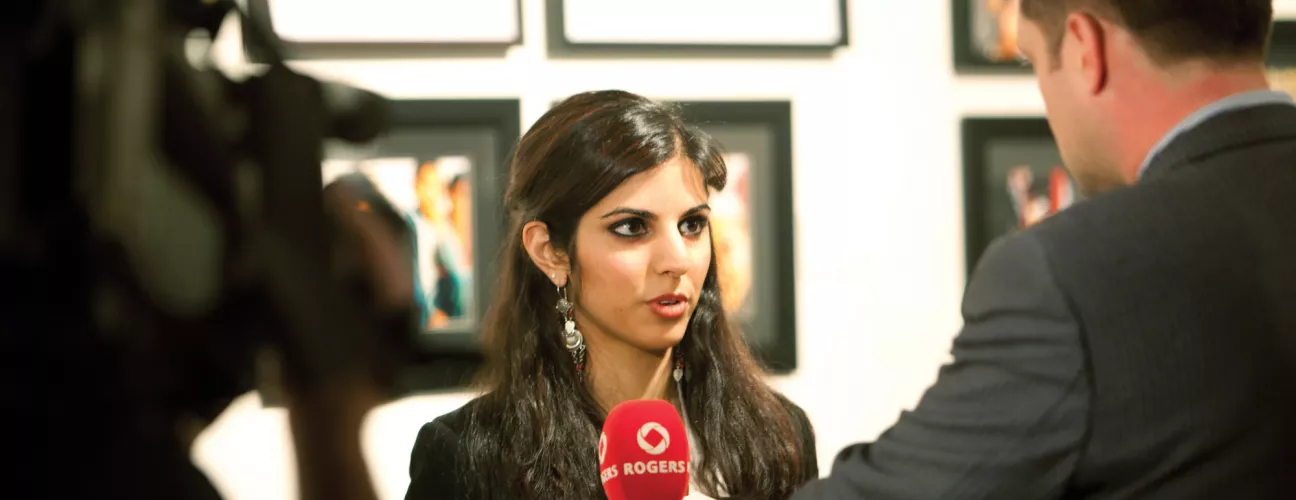
Tips for Talking to Reporters - Before the Interview
Journalists are almost always racing the clock. Return emails and calls promptly, with the understanding that you are never required to do an interview on the spot. Don’t be afraid to ask the questions you need to prepare:
- What is your article about?
- Why are you writing this now i.e., what is the “news hook” or the reason for the story?
- Why are you interviewing me?
- How much time do you need?
- Who else are you speaking to?
- What is your deadline?
- What is the format? Is this for tv or radio? Is it live? Or is it live to tape?
- Will there be a panel and if so, who else is on it?
- Get the reporter’s name and contact information and call back at a mutually agreed time (once you’re prepared).
Reporters love good sound bites. Solid, 'quotable quotes' for their article or newscast make a good story, a better story. Know in advance the key message or quote you’ll want to make, as it will add credibility, interest and emotion to the interview. Also give consideration to how you might respond to unwelcome questions. For more tips, refer to "Broadcast Interviews: Look Your Best on Camera" and "Tips for Virtual Broadcast Interviews".
Tips for Talking to Reporters - During the Interview
Congratulations, you have an upcoming interview about your research!
Here are some tips to help you navigate the interview.
- If you are promoting a publication or paper, ensure you understand and abide by the journal’s embargo requirements.
- Reporters know their audience and the requirements of journalistic writing are different from those of an academic journal. Do not tell the reporter how to do his or her job.
- Remember that the reporter does not know as much about your area as you do. Also, he or she may have been given the assignment only an hour ago, so don’t be surprised if the reporter seems unprepared. Have patience in clarifying facts and issues that may seem simple to you.
- Explain the significance of your work to everyday life: what are the implications? Why should the audience care?
- Simple, straightforward, layperson explanations, free of jargon, reduce the chance of distortion or error.
- Researchers are justifiably wary of their results being overstated and creating false hopes. Minimize the dangers by cooperating with the reporter, outlining clearly and concisely the main findings, how they fit into the bigger picture, and the need and direction for future research.
- Know that everything you say won’t be used. Decide what your two or three key points are and make them clearly.
- Understand that time, space and interest constraints tend to favour stories that emphasize research with practical results, new techniques and surprising phenomena. It is nevertheless important that the public understand the process by which knowledge advances. Use the opportunity to illustrate the process simply and clearly using anecdotes where possible to make it interesting.
- You won’t see the reporter’s story before it runs but do let the reporter know that you are available to answer any further questions or clarify points that may be unclear. If you have additional images or video that might help illustrate the story, offer these (provided you have copyright to do so).
- Don’t be afraid to show your enthusiasm for your work and mention your department and, of course, the University of Toronto Mississauga!
Tips for The Problem Interview
So you have an upcoming interview and are anticipating the need to navigate some controversial or contentious issues.
Follow these tips to smooth the waters.
- Seek advice beforehand on how to approach the interview by contacting the Office of Communications and notify your Dept. head of the potential problem. Ask the Office of Communications to help you prepare for potentially controversial questions a reporter may ask.
- Stay within your area of expertise and responsibility and don’t be coaxed into making speculative statements that might backfire on you. The Office of Communications can help set up an additional interview for the reporter, if necessary. Never speak off the record.
- Avoid saying “no comment.” It sounds suspicious and unhelpful and leaves the impression you are hiding something. Instead, give a reason why you can't answer the question, e.g. the matter is before the courts or still being negotiated/reviewed, etc.din to a negative question, answer with a positive.
- In responding to a negative question, answer with a positive. Q. “Why has your research failed to... ?” A. “My research has expanded understanding of...”.
- Keep your emotions in check, especially for an on-camera interview. Remember, for an issue-oriented story, other sources will be contacted for their comments. Avoiding a tough interview won’t kill the story but it will kill your chance to get your messages out.
